6 Unexpected Festivals to Experience Across China
From beer to tea festivals, four nomads weigh in on their favorite festival experiences in China.
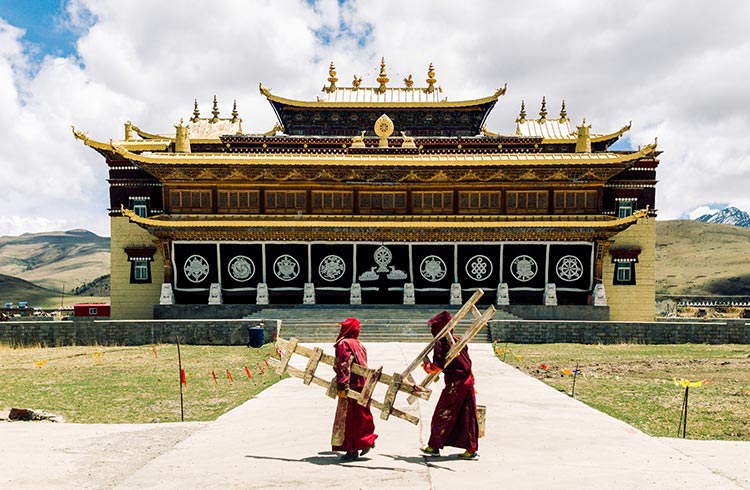 Photo © Getty Images/StreetFlash
Photo © Getty Images/StreetFlash
- Dragon Well Tea Festival in Zhejiang
- Litang’s Horse Festival in Sichuan
- Qurban Festival in Xinjiang
- Lusheng Bamboo Pipe Festival in Guangxi and Guizhou
- Qingdao International Beer Festival
- West Lake Lotus Festival, Hangzhou
Dragon Well Tea Festival, Zhejiang
“This is my kind of festival,” I tell my tour guide as we recline in armchairs, sipping Longjing tea while looking out across a terraced tea field. There are no loud performances or colorful parades at the Dragon Well Tea Festival. It is decidedly understated, rather like the refined taste of the tea here.
Longjing village, in the eastern province of Zhejiang, has long been one of China’s premier tea-growing locations. Most of its plantations are closed to visitors, but during this festival, held over four days during April’s harvest season, many open their doors and offer tea-tasting sessions.
Tea lovers come to do a more sophisticated version of a pub crawl, going from one plantation to the next. I lose count of the number of different teas I taste at the three plantations I visit. But, what I can remember, is the calm and quiet, unlike any other festival I’ve attended. – Ronan O’Connell
Dates: Held over four days during tea harvest season each April.
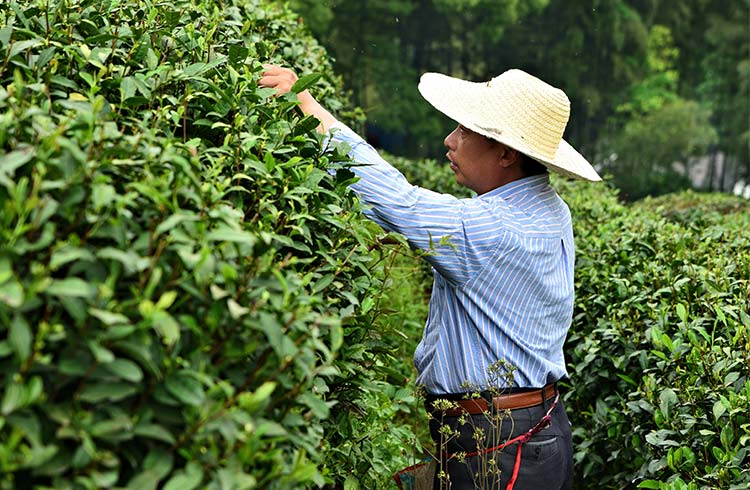
Litang’s Horse Festival, Sichuan
I’m standing and squinting into infinite rolling grasslands, almost blinded by the high-altitude sun and the bluest sky I’ve ever seen. Not too far ahead is a man bent over the neck of his stocky Tibetan pony. Humming in prayer, he caresses his mount’s head as if he wants to pass on a good luck spell. This ritual reduces the conceited voices of hundreds of spectators like me to a mumbled whisper.
We are on a grassy meadow somewhere outside Litang Town, at 13,170ft-high, one of the world’s highest communities, lost in the far-flung Eastern Tibetan region of Kham. To avoid police retaliation, the precise location is kept secret to non-Tibetans, and passed around as a hushed insider secret only a couple of days before the event. It’s in this remote corner of China that, once a year, the nomadic Khampa herders regroup to race for honor and prestige, establish their nomadic socio-economic hierarchies and search for beautiful wives.
I get closer to the line of people waiting on the side of an open patch of grassland. It serves as the main racing ground for the different types of challenges that the Khampa horsemen will brave on horseback. Right now, each rider competes to show his acrobatic skills on a saddle. When I least expect it, the horse and rider forge ahead, gaining speed as chunks of black earth fly behind their trail. And as the horse bites on his bridle, the rider lets himself fall to the side of his mount, I gulp in awe. With his legs clinging to the body of his running horse, the man floats and swings, hesitates, and then grabs a rock perched on the top of the earthen mound that soars in the midst of the racetrack.
He then lifts himself back up amidst the screams and applause, for he’s a winner. Hundreds of round leather cowboy hats swing madly in the air as the next rider takes the position at the beginning of the racetrack, getting set up for another heady ride. The wild Khampas all around cheer again, thrilled to continue celebrating their sacred day of acrobatic races. – Marco Ferrarese
Dates: After the Tibetan riots in 2008, to avoid retaliation from the Chinese authorities, no outsider knows the precise date and location of Litang’s Horse Festival, which falls in the first half of August. You should be ready to wait and ask around in Litang town around August 10, or contact local tour companies, who are generally able to arrange a visit as part of a tour.
How to get there: Litang is easily reached by bus from Chengdu with an overnight stop in Kangding. Alternatively, fly directly to Kanding from Chengdu to shorten the lengthy road trip.
Qurban Festival (Eid al-Adha), Xinjiang
The musty smell of livestock fills the city air long before I watch a large herd of sheep cross the busy intersection like a traffic jam of cars. Every spare parking lot and city park is turned into an animal enclosure as the locals prepare for this bloody yet joyful “festival of sacrifice” known as Qurban.
Along with much of the Arab world, Muslims all throughout western China, such as where I am in Xinjiang, look forward to this day as their biggest holiday and holiest celebration. I wake early this morning to watch the men gather at the local mosque for prayers, and now I’m meandering through neighborhoods enjoying the jovial atmosphere of a community united in the remembrance of Abraham’s sacrifice of a lamb instead of his son. – Josh Summers
Dates: It’s surprisingly hard to determine the exact day of Qurban. Since the holiday is based not only on the Islamic calendar but also on the day a new moon is sighted the month prior, even my neighbors weren’t sure what day we were going to celebrate until just a couple weeks ago.
Lusheng Bamboo Pipe Festival, Guangxi and Guizhou
I’m part of a large circle, hand in hand with Dong tribespeople, as we dance to the high notes of the lusheng, a mouth organ which typically features six pipes of different pitches and sounds vaguely similar to a bagpipe. For more than 500 years, this bamboo instrument has been played by tribes in southwest China, including the Dong, Miao and Hmong people, and is played at weddings, religious rituals and celebrations.
It is the focal point of the Lusheng Festival, held over five days each February in villages across the southwestern Chinese provinces of Guangxi and Guizhou, including Pingzhai in Guangxi, where I’m enjoying the festivities.
Designed to let young tribespeople showcase their abilities, as well as performances by the men on the lusheng, there are horse races and bull fights, while the women sing, dance and display their embroidery skills via their elaborate outfits. The festivities bring fortune for the next harvest in what are still agriculture-based communities.– Ronan O’Connell
Dates: Five days each February.
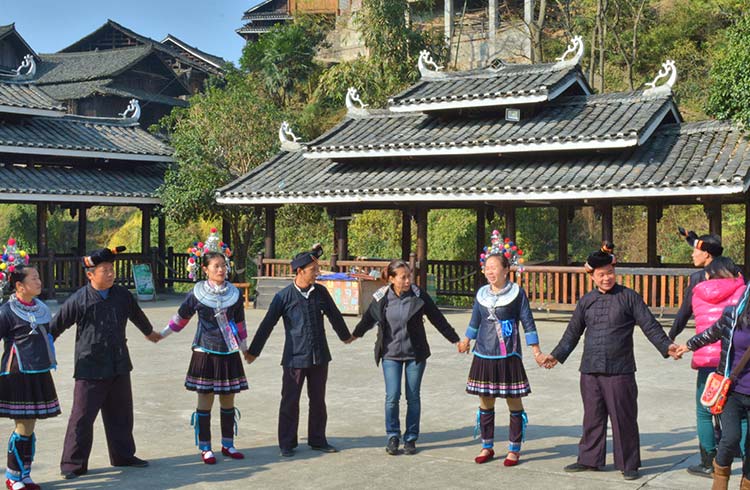
Qingdao International Beer Festival
When a well-groomed woman, in a red form-fitting dress, sidles up to me at the Qingdao railway station and offers me a free drink, my ‘stranger-danger’ warning alarm goes off. According to the clock tower, the sun isn’t yet over the yardarm. But, perhaps I might accomplish everything I have planned on my weekend visit to the former German territory and naval port: marvel at heritage architecture, meet new people, and sample the city’s best-known product: beer.
I succumb to the charms of my mid-morning solicitor, and am offered a plastic glass filled with chilled pale lager. “Gan Bei,” says the woman, who I discover is called Joy. “It means bottoms up.” I oblige. In return for another – which I’m told is infused with rice for a crisper taste – I pose in front of the Tsingtao Beer banner as an ‘honored foreign guest’.
Then, some suited Communist officials insist I join a group photo to toast the legacy of the brewery, founded in 1903. “Well, if the party says ‘party’, who am I to refuse?”
Freshly poured beers are thrust into my hands, as I am peppered with new titbits about this seaside beer festival, which started in 1991. Dubbed Asia’s Oktoberfest, this August festival attracted more than six million revelers in 2018, who flocked to enjoy gala parades, song and dance performances, beauty pageants, and amusement parks. Punters can drink in the tents of local and global breweries late into the night, while snacking on seafood and bratwurst. Foreigners who want to see carnival China at its messiest might find themselves the center of attention, joining others to ‘Gan Bei’ with the world. – Keith Lyons
Dates: The Qingdao International Beer Festival takes place throughout August.
Getting there: Qingdao is easily accessible with flights from all over China and flights and overnight ferries from South Korea and Japan (transiting arrivals can get a 72-hour visa-free stay. The fastest option is the four-hour high-speed train from Beijing 415mi (670km) away, while Shanghai, 450mi (712km) south, is six hours by fast train.
It is a short taxi ride from Hongdao Station to the main festival venues; Golden Sands Beach, Laoshan Beer City, and Century Square. Just follow the crowds. Entry for afternoon/evening sessions 10-20 RMB (US $1.50-3)
West Lake Lotus Festival in Hangzhou
Under the instruction of an experienced dancer, I’m trying to wave a Chinese hand fan in an alluring manner while moving to the rhythm of a Chinese opera tune. A crowd of locals are watching me make a mess of one of their ancient artforms. Yet they don’t seem to mind, as most people here in Hangzhou are in a good mood during the annual West Lake Lotus Festival.
With their wide leaves and bright pink flowers, lotuses decorate the surface of West Lake for most of the year. But they are at their most beautiful in July and August, coinciding with this festival. For many centuries, Chinese visitors have flocked to the eastern province of Hangzhou to admire its lotuses. Less than 50 years old, this festival features lotus flower exhibitions, lotus cooking demonstrations, folk opera performances, hand fan dances, and the floating of lotus lanterns on the lake to earn good luck.– Ronan O’Connell
Dates: Held across July and August each year.
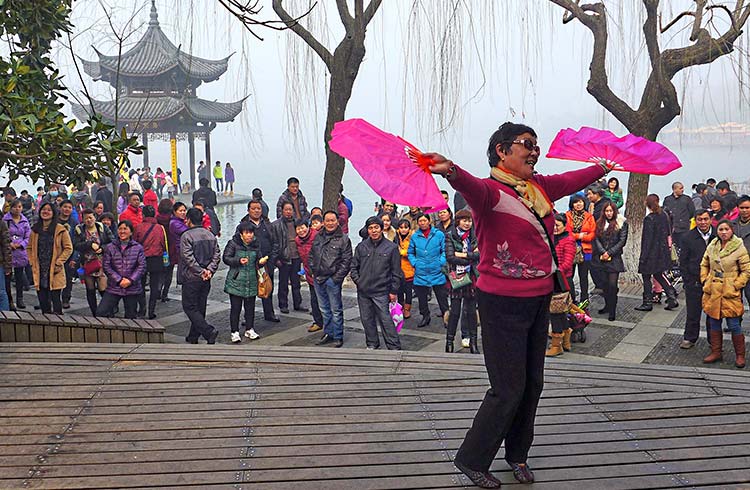
Related articles
Simple and flexible travel insurance
You can buy at home or while traveling, and claim online from anywhere in the world. With 150+ adventure activities covered and 24/7 emergency assistance.
Get a quote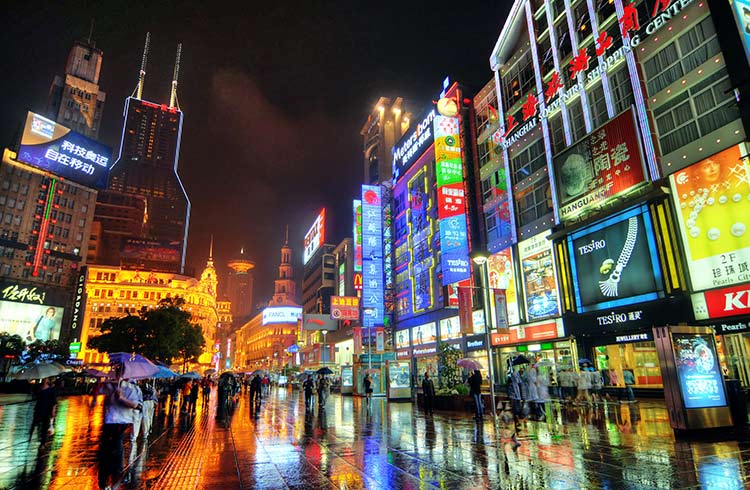
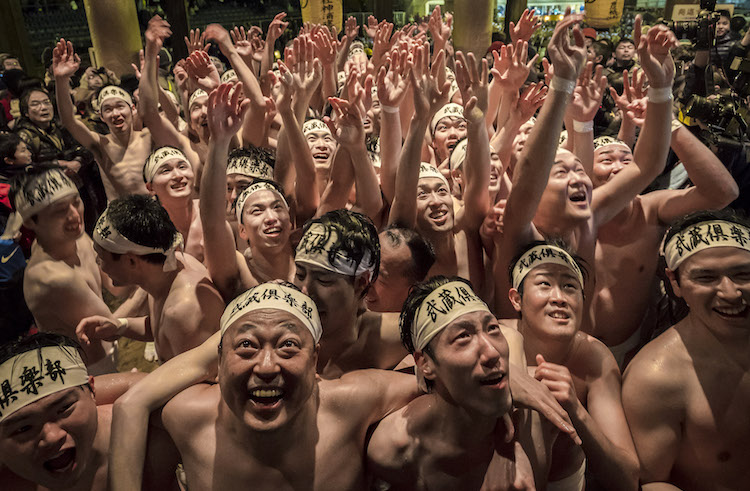
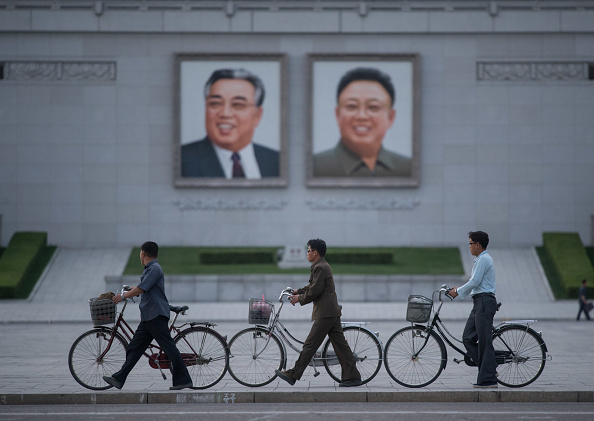
No Comments